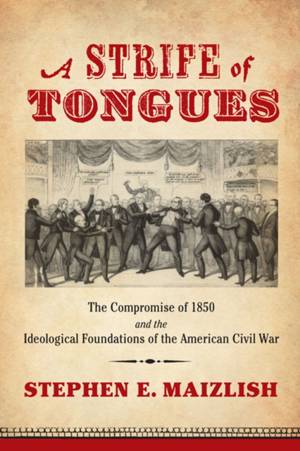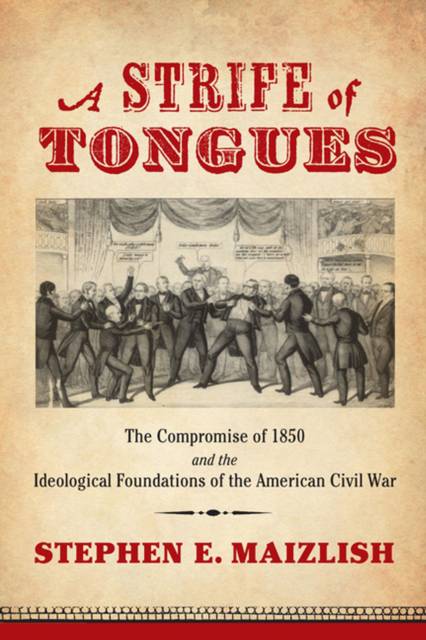
- Retrait gratuit dans votre magasin Club
- 7.000.000 titres dans notre catalogue
- Payer en toute sécurité
- Toujours un magasin près de chez vous
- Retrait gratuit dans votre magasin Club
- 7.000.0000 titres dans notre catalogue
- Payer en toute sécurité
- Toujours un magasin près de chez vous
A Strife of Tongues
The Compromise of 1850 and the Ideological Foundations of the American Civil War
Stephen E MaizlishDescription
Near the end of a nine-month confrontation preceding the Compromise of 1850, Abraham Venable warned his fellow congressmen that "words become things." Indeed, in politics--then, as now--rhetoric makes reality. But while the legislative maneuvering, factional alignments, and specific measures of the Compromise of 1850 have been exhaustively studied, much of the language of the debate, where underlying beliefs and assumptions were revealed, has been neglected.
The Compromise of 1850 attempted to defuse confrontation between slave and free states on the status of territories acquired during the Mexican-American War--which would be free, which would allow slavery, and how the Fugitive Slave Law would be enacted. A Strife of Tongues tells the cultural and intellectual history of this pivotal political event through the lens of language, revealing the complex context of northern and southern ideological opposition within which the Civil War occurred a decade later. Deftly drawing on extensive records, from public discourse to private letters, Stephen Maizlish animates the most famous political characters of the age in their own words. This novel account reveals a telling irony--that the Compromise debates of 1850 only made obvious the hardening of sectional division of ideology, which led to a breakdown in the spirit of compromise in the antebellum period and laid the foundations of the U.S. Civil War.
Spécifications
Parties prenantes
- Auteur(s) :
- Editeur:
Contenu
- Nombre de pages :
- 332
- Langue:
- Anglais
- Collection :
Caractéristiques
- EAN:
- 9780813941196
- Date de parution :
- 21-06-18
- Format:
- Livre relié
- Format numérique:
- Genaaid
- Dimensions :
- 160 mm x 229 mm
- Poids :
- 612 g

Les avis
Nous publions uniquement les avis qui respectent les conditions requises. Consultez nos conditions pour les avis.






